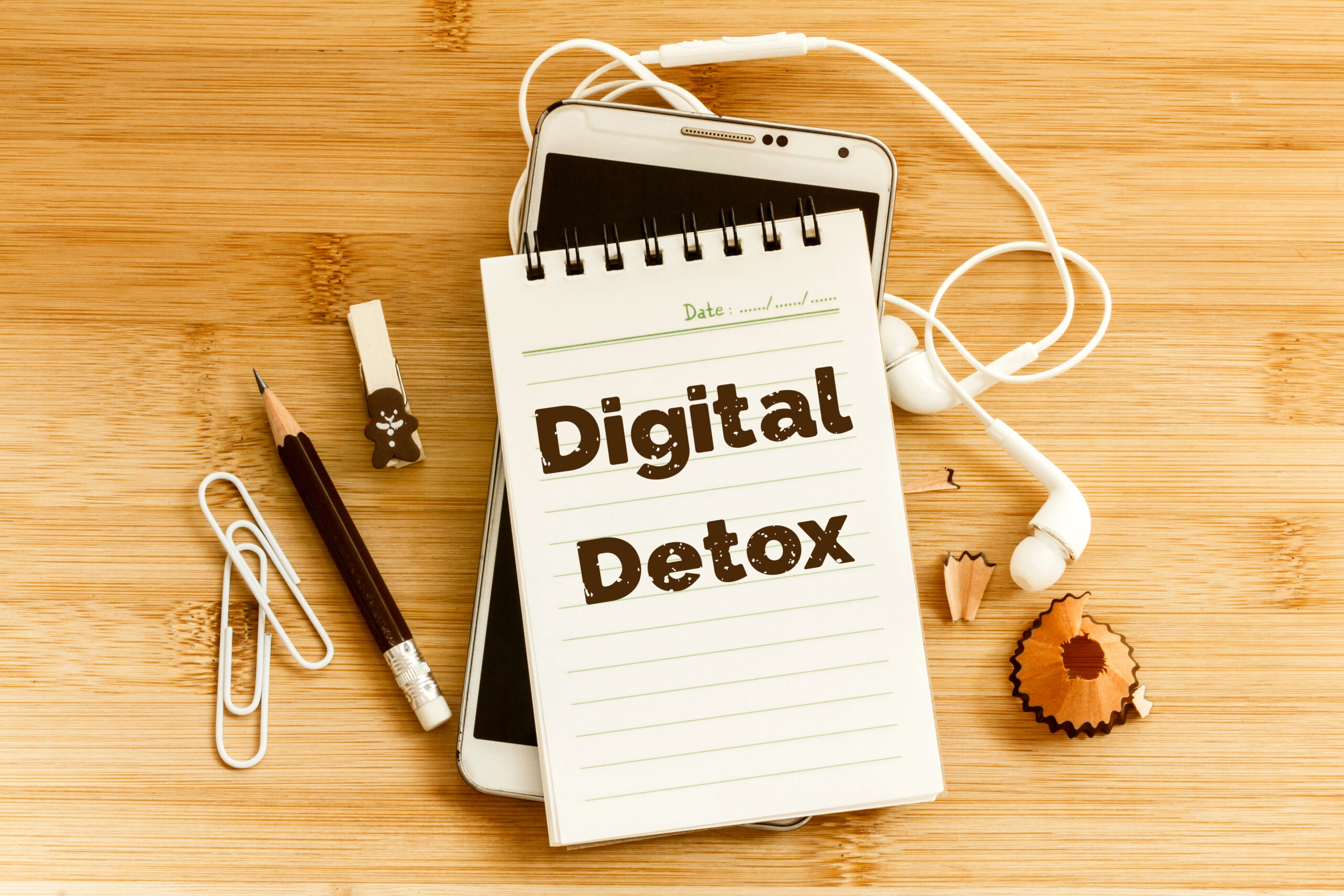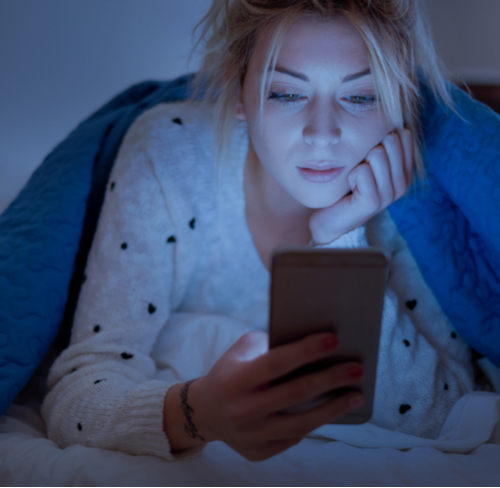Digital Detox: How Harmful Gadgets Are for Our Health and Do We Need a Break?
Notebooks, smartphones, tablets…Every day we spend many hours looking at our screens. According to the calculations of Nielson Company in the report, titled “Americans Devote More Than 10 Hours a Day to Screen Time, and Growing”, an average adult American had spent 10 hours 39 minutes with electronic devices each day during 2016-2017, and there are all grounds to believe that during the next years this figure will grow. Indeed, modern lifestyle is impossible without information, and our gadgets have been providing much more than instant communication and necessary data for already a long time. We delegate more and more functions, which we were used to doing on our own, to special apps. Gadgets allow us to read, watch movies, track sports, and even improve our physical shape, sleep, and state of health. But how safe are these gadgets to our health? And what is better: cutting the time we spend on gadgets and have a regular digital detox, or having smartphones and laptops as an integral part of life.

Does blue color mean danger?
The first thing which comes to mind when we think about the impact of gadgets on our health is visual impairment. But the doctors warn that our eyes are not the only victim of electronics. Dry eyes, short-sightedness, and reduced visual acuity are only a few, among other unpleasant consequences. A specific blue light, emitted by screens of most devices, affects our nervous system, brain cells, circadian rhythms, and even our skin. And, according to the doctors, this impact is negative more often than not.
What is blue light?
As we know, the color is a wave of light, and each of these waves has its own frequency. Warm colors, located at the beginning of the spectrum, have the lowest frequency. They are the most comfortable for our eyes and make the lowest impact on our vision. The cool colors come from the other side of the spectrum; some of them are invisible for our eyes (for example, ultraviolet light), while others penetrate deep into our eyeballs and cause additional stress. The artificial blue light also falls into this category of high-frequency colors. The light emitted by electronic gadgets has a wavelength of 380-500 nanometers, while the so-called HEV light, considered the most dangerous one, has a wavelength of 415-455 nanometers. It is precisely this light that affects our eyes the most. By the way, welding masks and sunglasses are made to protect exactly from this type of light.
But even if the gadgets you use do not emit HEV light, your health can still be in danger, and the closer your face is to the source of light, the more dangerous it is for you. A TV set is less harmful than a laptop and desktop, which, in turn, are less harmful than a smartphone, which we keep right in front of our eyes.
Blue light vs. sleep: who wins?
Even if we exclude gadgets entirely from our life, we will get exposed to blue light. We get exposed to high-frequency light emitted by the sun, and it affects the production of melatonin, which is a hormone, helping to regulate our circadian rhythms and quality of sleep. Under normal conditions, a bright day is followed by twilight when there is less light, and our body produces more melatonin so that after dark, we are getting sleepier. If nothing interferes with accumulating and releasing melatonin during the day, then, most likely, we will have a good sleep, gradually transitioning from REM-sleep into a deep sleep, when our brain has the best rest and the body fixes small injuries to our cells, received during the day. In this case, we get up in the morning alert and fully rested.
However, if during the twilight, we are watching a movie, reading the news or just texting with friends or colleagues on a smartphone or tablet instead of giving our eyes some rest and letting our brain to release melatonin, this process would be undermined. And when we finally decide to get some sleep, the quality and even the duration of sleep will be lower. Thus, the report of Adolescent Psychiatric Clinics, published in 2018 has shown that those who have subjected themselves to blue light before going to bed, had less REM-sleep. Besides, this effect was accumulating and resulted in severe sleep deficiency after a certain time.
Another reason to stop using gadgets before sleep is the increased risk of insomnia. The Norwegian report, “Sleep and Use of Electronic Devices in Adolescence: Results From a Large Population-Based Study”, which included results of researching habits and quality of sleep of 10 thousand teenagers, has demonstrated, that regular use of gadgets before sleep leads to a state when we need more time to get asleep and more time to wake up. As a result, we spend a considerable time of the night rest not on sleep itself but on falling asleep and getting awake. The same research has confirmed the direct relation between the habit to use your gadget at night and insomnia: almost all those, who have participated in the study and used a smartphone or tablet more than one hour before sleep, were complaining about insomnia even if they didn’t have this issue before.
Finally, the authors of the research have assumed that the posture we use when reading from a smartphone or working with our laptop can have a negative impact on the quality of our sleep. Having forward head posture, as well as tensed-up neck and shoulders for several hours, lead to muscle spasm, cramping, and curved spine while unpleasant, painful sensations, which follow, prevent us from having a good rest and make our sleep less productive.
Other ways gadgets affect our health
Even most modern screens, offering maximum protection and strain relief for your eyesight, still affect how we feel in a negative way. Here are only a few health issues encountered by those who spend too much time with electronic devices.
We are blinking less

The research, titled “Blink Rate and Incomplete Blinks in Six Different Controlled Hard-Copy and Electronic Reading Conditions”, published in the year 2015 in Investigative Ophthalmology & Visual Science periodical, has confirmed that people, who read books from tablets or smartphones (especially those who work with these devices) blink less and rarely close their eyes. Why is this dangerous? Blinking is a process that allows to keep our eyes moist and protects our eyesight from infections and mechanical injuries. Also, when we blink, we immediately relieve our eyes from strain and help the muscle to “reload.” The less often we do it, the more strained and dry our eyes become. This results in reduced visual acuity and even an increased risk of some eye diseases.
We start having digital aches
The so-called digital or visual aches and pains are not necessarily followed by a headache. Sometimes, they show up as colored dots or spots, flashing before our eyes during 20-30 minutes, or dizziness, nausea, and even vomiting. And, of course, they can result in a headache. According to the conclusions of the research, run by Brigham Hospital (USA), titled “Visual Migraine”, two hours of continuous work on the smartphone is enough to induce a headache attack. The headache and other symptoms can develop from flickering screens, poor lighting, and bad posture we adopt while working when the neck is stretched forward, and shoulders are tensed up. This can squeeze our blood vessels, interfere with blood supply to our brain, and lead to a headache.
Getting neck and jaw pains
At first, it may sound surprising that eye strain can lead to a toothache. In reality, this is explained by the trifacial nerve, which works as a highway, connecting eyes with the temporal bone and the jaw. If your eyes are stained for a long time, the trifacial nerve is under more substantial pressure, which can lead to severe pain in our neck, the sides of our face, or even the jaw.
Our skin ages faster
It is true that the blue light also affects our skin and not in the best way. As early as in 2008, the authors of the research “Blue-Enriched White Light in the Workplace Improves Self-Reported Alertness, Performance and Sleep Quality” have stated that the light with such wavelength can perpetrate into our skin as deep as UV-light and has almost the same negative effect. Prolonged exposure to the blue light leads to wrinkles, pigmentation, and premature skin aging. Fortunately, the studies have not confirmed a possible relation between long exposure to blue light and a higher risk of skin cancer, but premature aging is bad enough on its own.
How to protect yourself from blue light
The most important is to cut the time we spend on gadgets as much as possible, especially in the evenings. Most physicians agree that the last time we can use electronic devices should be no later than two hours before sleep, and it is better to keep them off your bedroom. It’s recommended to take regular breaks during the day, giving our eyes some rest. The doctors of Bergamo hospital recommend the 20-20-20 technique for prevention of digital aches, which presumes making a 20-second break after every 20 minutes of work, looking at something else that is 20 feet away from you.
It is also essential to correctly position the screen of your desktop or laptop. The least strenuous position is when the center of the screen is located a little below your eyes, and the screen itself is positioned at arm’s length distance from your face. Adjust the indoor lighting (it shouldn’t be dim) and contrast of your screen. If necessary, you can also use a matte filter to reduce glare on the computer screen.
Are blue block glasses any good?
The so-called blue block glasses have lenses that can block a part of HEV light. Some models can be worn over your standard glasses. The manufacturers promise that glasses can block up to 40% of all high-frequency light. But do such glasses really help in solving the blue light issue? Unfortunately, so far, the researches haven’t found any evidence to support this opinion.
Thus the summary of three studies, titled “The Effect of Blue-Light Blocking Spectacle Lenses on Visual Performance, Macular Health, and the Sleep‐Wake Cycle” published in the year 2017, has demonstrated that there is no direct evidence that using such glasses decreases exposure to blue light. The participants of the studies, who have used blue block glasses, experienced the same problems with sleep, vision, and fatigue as those volunteers who didn’t use such glasses.
Surviving in the digital world
We can hardly ditch gadgets emitting blue light. Even if we can, this will have an inevitable impact on our life. Only a few people living in the modern world can live without instant communication and access to necessary information. But we can keep our risk low by using electronic devices, which emit blue light, in a more responsible way, not forgetting about prevention measures and staying on the safer side.
Learn more about Sleep, SUPPLEMENT+
What to learn more? Read here:





